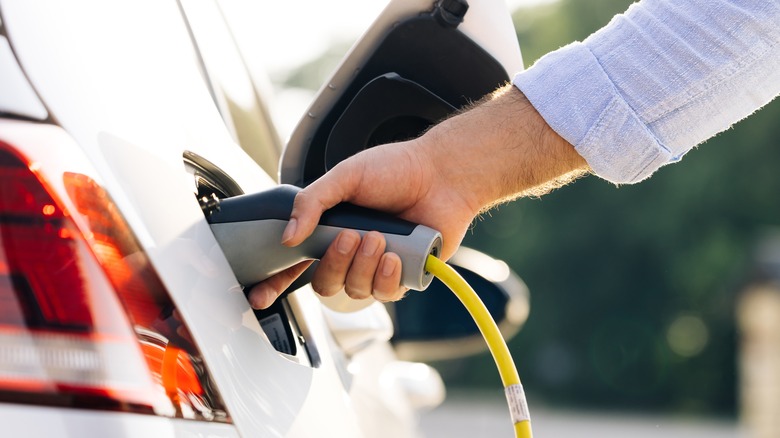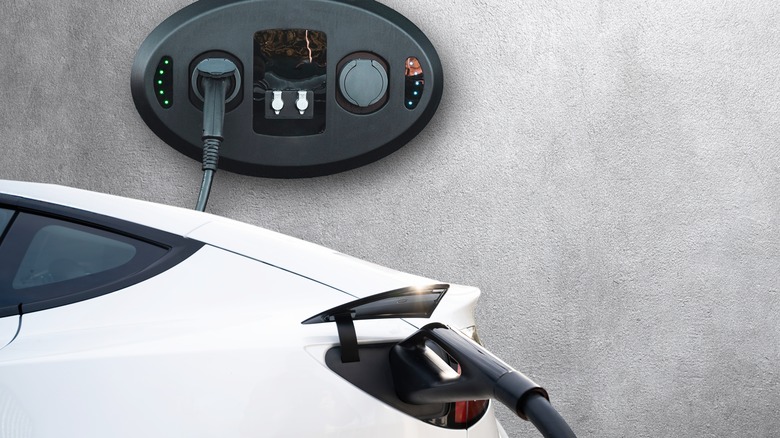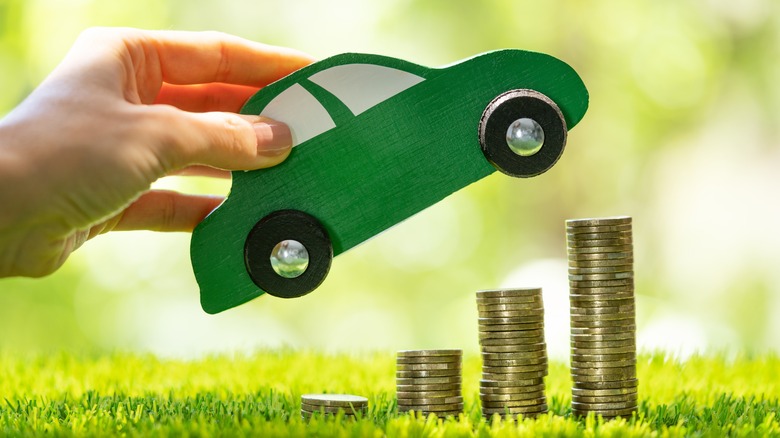Why You Might Not Want To Buy That Cheap Used EV
Buying a used car has always been a good way to save a few bucks on what would otherwise be an exorbitant purchase, not to mention reduce your carbon footprint by using existing cars instead of buying new ones. Naturally, these benefits extend to EVs, which means double the environmental impact reduction. If you're in the market for your very first EV, it's always worth checking out the used ones on the lot.
That said, much like with buying a regular used car, you should be very careful when searching for a used EV. Not only do you need to take the usual wear and tear of a pre-owned vehicle into consideration, but there are several potential issues that are specific to EVs that you should think long and hard on before committing to a purchase. EVs may be the new hotness on the travel scene, but being new also means having new problems.
Potential power problems
The first and biggest thing you need to think about before purchasing a used EV is the longevity and efficacy of its battery. You know how your smartphone's battery tends to lose some of its luster with age, not holding its charge as long or not charging all the way? EV batteries can experience similar issues with the passage of time.
According to a 2020 report from vehicle study group Geotab, EV batteries can degrade as much as 2% per year depending on how heavily they're used. If someone's already been using an EV heavily before trading it in, that means you're getting the EV equivalent of a middle-aged person. Granted, since EVs are so new, we don't know the full extent of their battery degradation over time, just estimates. Even so, it's a risk to your used EV's potential longevity. Just like how you don't want a used car to blow a gasket right after you drive it off the lot, you don't want your used EV's battery puttering out seconds after powering up.
Technology commitment
EVs are still a very young technology, and as such, they've gone through numerous changes in standards and frameworks since their initial inception. What's brand new now could become outdated in as little as a year, and that's just for brand new EVs. If you purchase an EV that already has a couple of years under its belt, you could be setting yourself up for obsolescence.
A used EV may be missing features that are standard on newer models like built-in smartphone connections, or otherwise they may be employing some kind of proprietary tech or feature that's already been rendered redundant by new advancements. In the best case scenario, your EV may be bloated or lacking feature-wise. In the worst case scenario, you may not be able to get support for one of your EV's critical features. It'd be downright awful to go to the trouble of installing a new charger in your home only to discover your EV uses some weird one-off adapter.
Resale value
As nice as it is to care for one car for most of your life and pass it down to your family, you should always be cognizant of a car's potential resale value. Due to a variety of social and economic factors, EVs tend to depreciate in value even faster than regular cars. If you buy a used EV and don't keep it in the absolute pinnacle of shape for years on end, it'll be next-to-worthless when the time comes to trade up. A car isn't just a means of conveyance, it's an investment, and if you're not getting any returns on it, then it's a bad investment.
With the right strategy, care, and a little luck, an EV can save you a lot of money in the long run in things like gas bills and ease of travel, and if you can get one in good shape for the right price, a used EV is perfectly fine. Think of buying a used EV like buying a used smartphone; it's cheaper and can do what you need it to, but you never know what kind of life it was subjected to before you got your hands on it. Do your research to ensure you aren't riding into the future of travel aboard a lemon.



